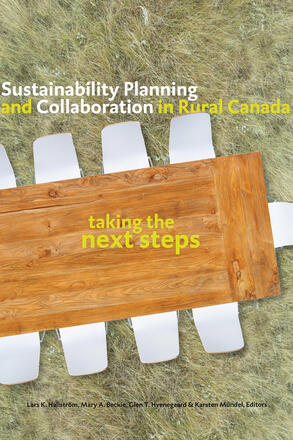
Sustainability Planning and Collaboration in Rural Canada
Taking the Next Steps
Description
Rural communities, often the first indicators of economic downturns, play an important role in planning for development and sustainability. Increasingly, these communities are compelled to reimagine the paths that lead not only to economic success, but also to the cultural, social, environmental, and institutional pillars of sustainability. As the contributors to this volume demonstrate, there are many examples of such innovation and creativity, and many communities that seek out new ways to build the collaboration, capacity, and autonomy necessary to survive and flourish.
Contributors: Don Alexander, Kirstine Baccar, Michael Barr, Mary A. Beckie, Moira J. Calder, Meredith Carter, Yolande E. Chan, Sean Connelly, Jon Corbett, Anthony Davis, Jeff A. Dixon, David J.A. Douglas, Roger Epp, Kelly Green, Lars K. Hallström, Greg Halseth, Casey Hamilton, Karen Houle, Glen T. Hvenegaard, Melanie Irvine, Bernie Jones, Robert Keenan, Rhonda Koster, Ryan Lane, Sean Markey, Shelly McMann, L. Jane McMillan, Morgan E. Moffitt, Karen Morrison, Karsten Mündel, Craig Pollett, Kerry Prosper, Mark Roseland, Laura Ryser, Claire Sanders, Jennifer Sumner, Kelly Vodden, Marc von der Gonna, Shayne Wright.
Reviews
“This book is an excellent compilation of research on rural sustainability issues in Canada, covering a number of topics by university researchers and rural communities working closely together.… The rural issues the contributors discuss all involve public engagement with academics and rural citizens working together, covering a wide range of issues, from Aboriginal communities to land use regarding conversion of farmland, to economic impacts of rural population loss and aging, and the meanings of sustainability.”
- Duane (Dewey) Thorbeck